A rod hinged at one end is released from the horizontal position as shown in the figure. When it becomes vertical its lower half separates without exerting any reaction at the breaking point. The find the maximum angle θ made by the hinged upper half with the vertical.
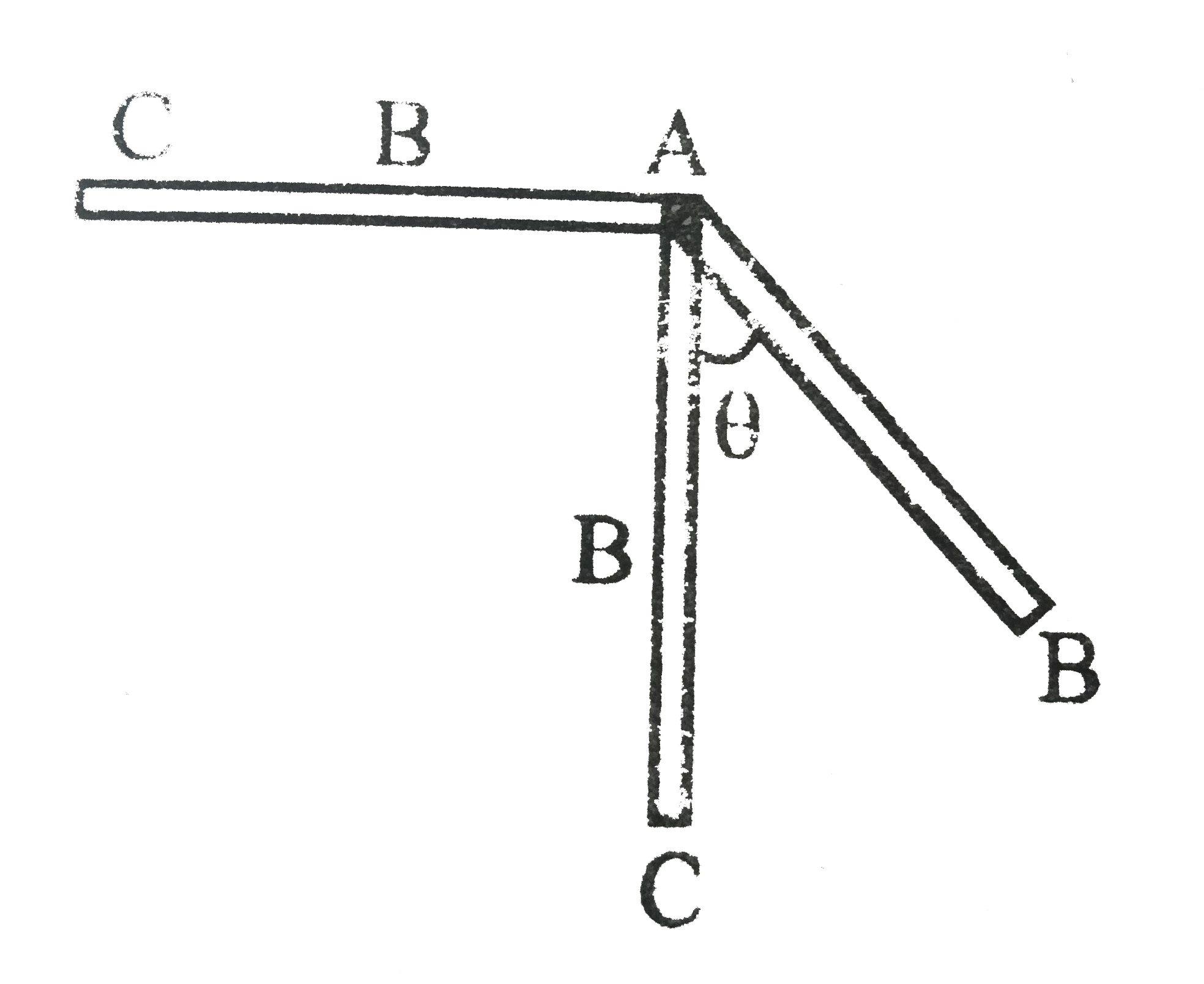 .
.
30∘
45∘
60∘
90∘
The correct Answer is:C
Step by step video & image solution for A rod hinged at one end is released from the horizontal position as shown in the figure. When it becomes vertical its lower half separates without exerting any reaction at the breaking point. The find the maximum angle theta made by the hinged upper half with the vertical. . by Physics experts to help you in doubts & scoring excellent marks in Class 12 exams.
Updated on:21/07/2023Topper's Solved these Questions
- 10 ROTATIONALBOOK - MOTIONCHAPTER - 10 ROTATIONALEXERCISE - Exercise - 2 (Level - II)
25 Videos
- 10 ROTATIONALBOOK - MOTIONCHAPTER - 10 ROTATIONALEXERCISE - Exercise - 3 (Level - I)
27 Videos
- 10 ROTATIONALBOOK - MOTIONCHAPTER - 10 ROTATIONALEXERCISE - Exercise - 1
77 Videos
- ALTERNATING CURRENTBOOK - MOTIONCHAPTER - ALTERNATING CURRENTEXERCISE - EXERCISE - 4 (LEVEL - II)
14 Videos
Similar Questions
A rod is released from the horizontal position as shown. It is free to rotate about hinge. Find angular velocity of rod when it become vertical?
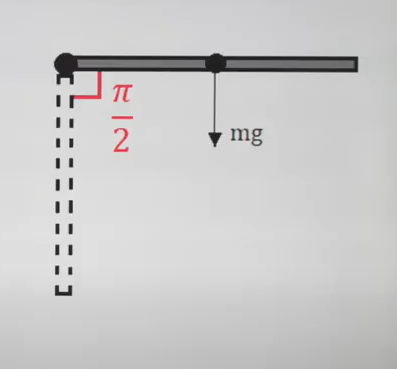
View SolutionA rod of mass m and length l is himged about one of its ends. The rod is released from horizontal position. When the rod becomes vertical, calculate (i) angular speed of the rod (ii) Hinge reaction.
View Solution
Knowledge Check
A simple pendulum A and a homogeneous rod B hinged at its enda are released from horizontal position as shown in figure.
 AThe times period of swing of simple pendulum is greater than that of rod If L=lBThe times period of swing of simple pendulum is equal to that of rod If L=lCThe times period of swing of simple pendulum is greater than that of rod If L=2l3DThe times period of swing of swing of simle pendulum is equal to that of rod if L=2l3
AThe times period of swing of simple pendulum is greater than that of rod If L=lBThe times period of swing of simple pendulum is equal to that of rod If L=lCThe times period of swing of simple pendulum is greater than that of rod If L=2l3DThe times period of swing of swing of simle pendulum is equal to that of rod if L=2l3A uniform rod of mass m, hinged at its upper end, is released from rest from a horizontal position. When it passes through the vertical position, the force on the hinge is
A32mgB2mgC52mgD3mgUniform rod AB is hinged at the end A in a horizontal position as shown in the figure ( the hinge is frictionless that is , it does not exert any friction force on the rod ). The other end of the rod is connected to a block through a massless string as shown. The pulley is smooth and massless . Masses of the block and the rod are same and are equal to 'm'.
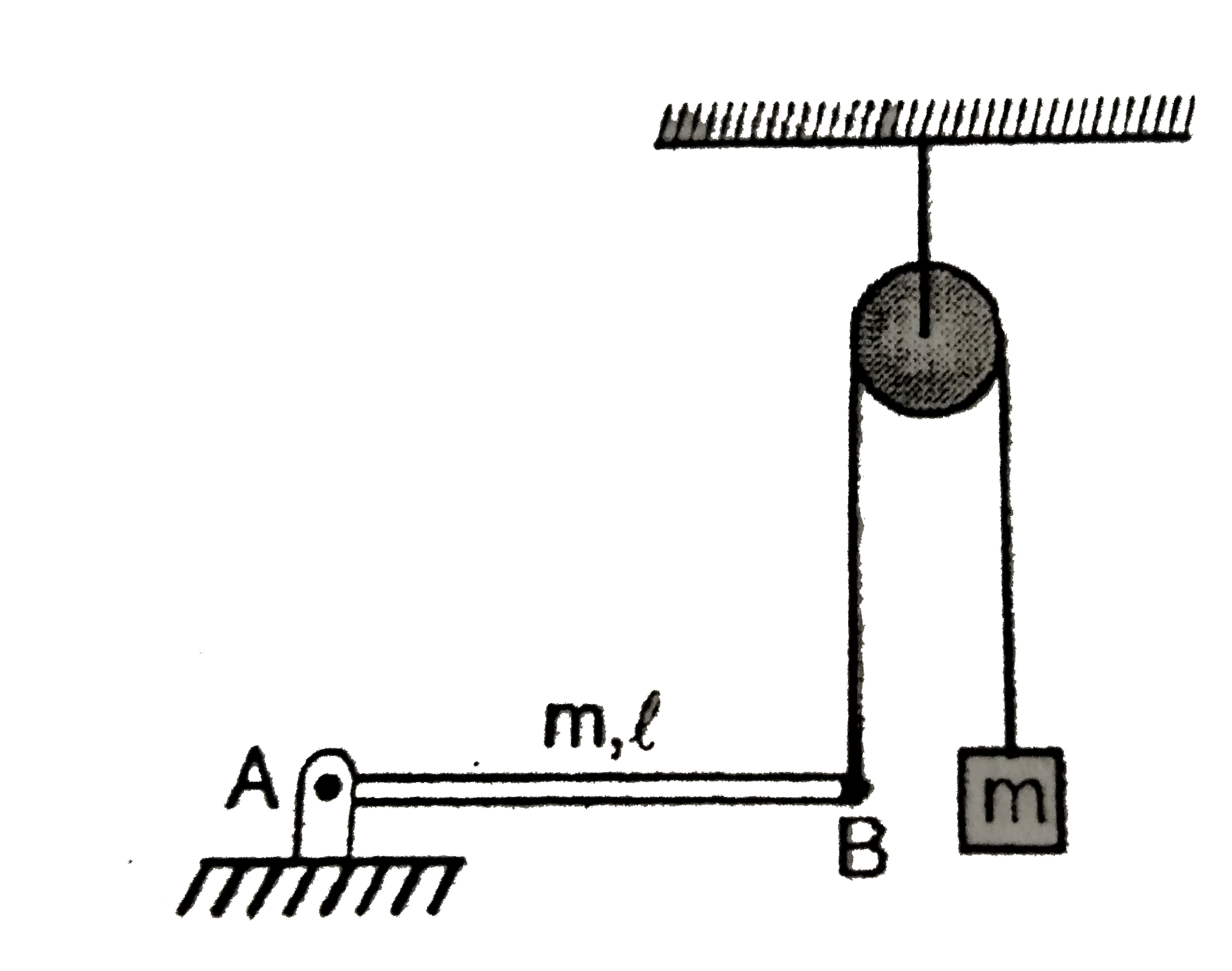
Then just after release of block from this position, the magnitude of reaction exerted by hinge on the rod isA3mg16B5mg16C9mg16D7mg16
A rod of length L is hinged from one end. It is brought to horizontal position and released. The angular velocity of the rod when it is in vertical position. Is
View SolutionUniform rod AB is hinged at the end A in a horizontal position as shown in the figure ( the hinge is frictionless that is , it does not exert any friction force on the rod ). The other end of the rod is connected to a block through a massless string as shown. The pulley is smooth and massless . Masses of the block and the rod are same and are equal to 'm'.
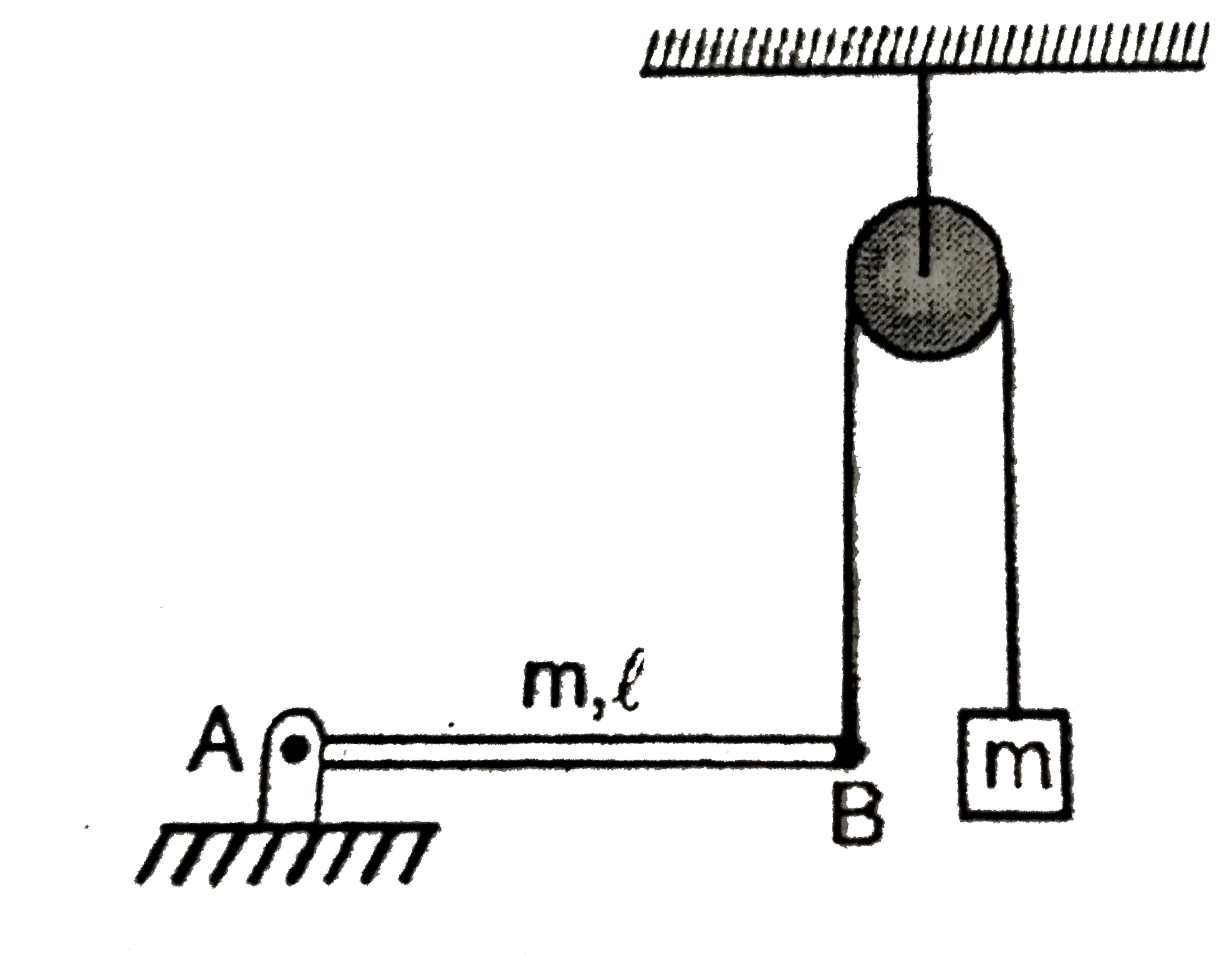
Then just after released of block from this position, the angular acceleration of the rod is
View SolutionUniform rod AB is hinged at the end A in a horizontal position as shown in the figure ( the hinge is frictionless that is , it does not exert any friction force on the rod ). The other end of the rod is connected to a block through a massless string as shown. The pulley is smooth and massless . Masses of the block and the rod are same and are equal to 'm'.
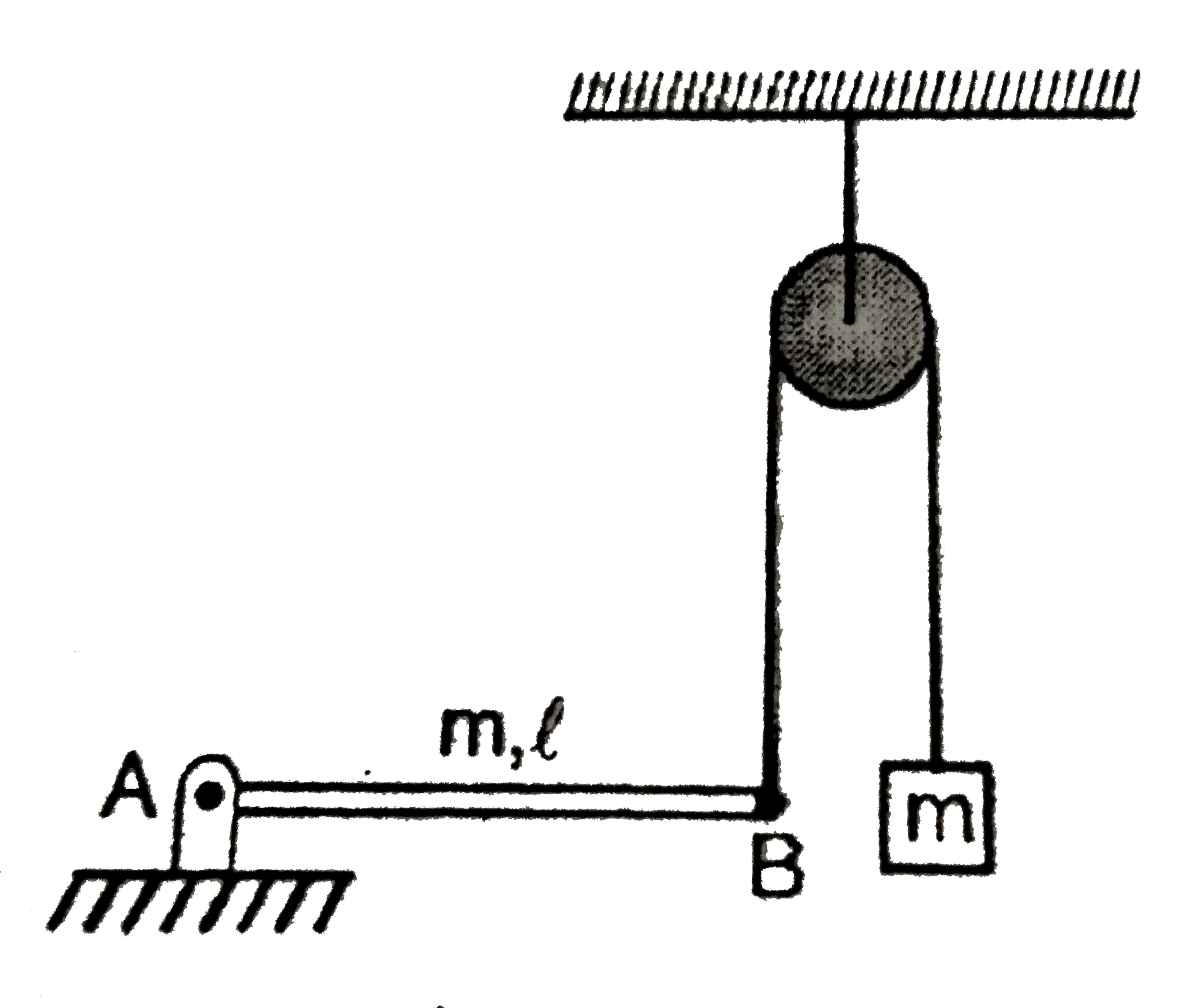
Then just after release of block from this position, the tension in the thread is
View SolutionA rod of mass m and length l is hinged at 'its' end and released from rest in position shown. Find the force exerted by the hinge when the rod becomes horizontal

View SolutionA rod of length L is hinged from one end. It is brought to a horizontal position and released. The angular velocity of the rod, When it is in verticle position is
View Solution
